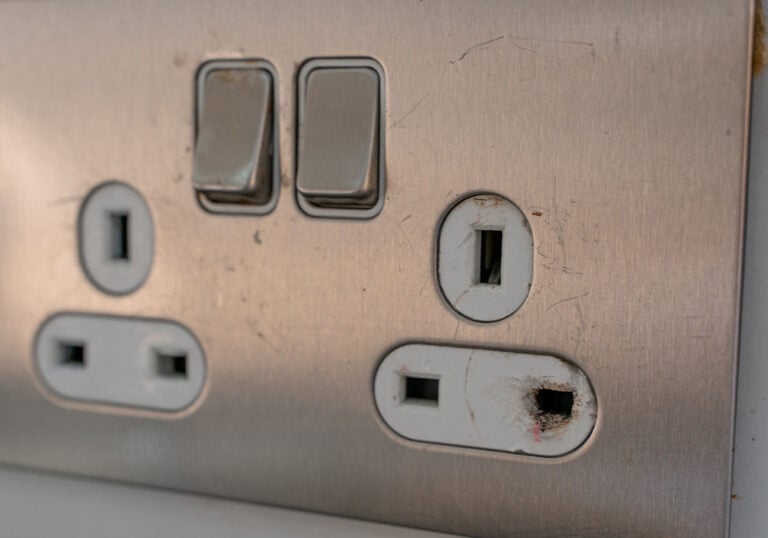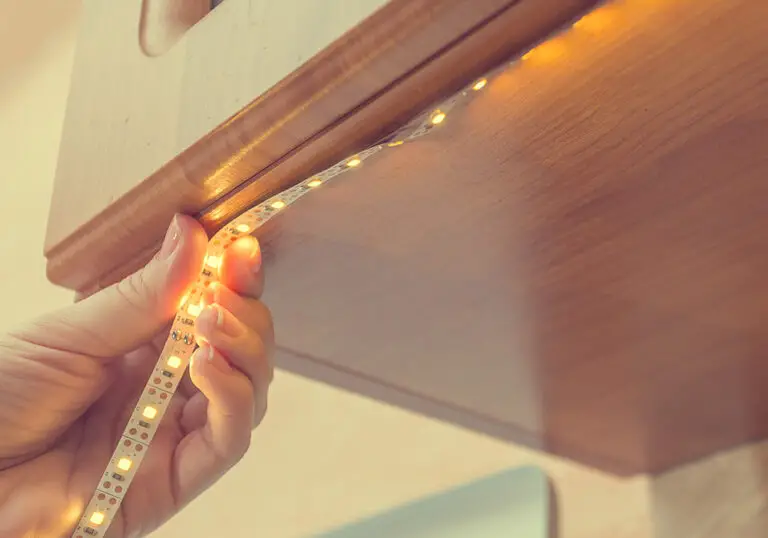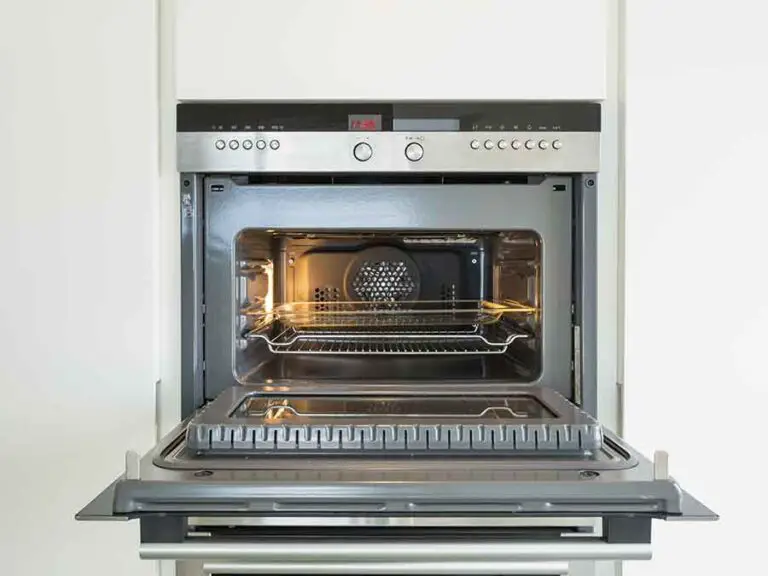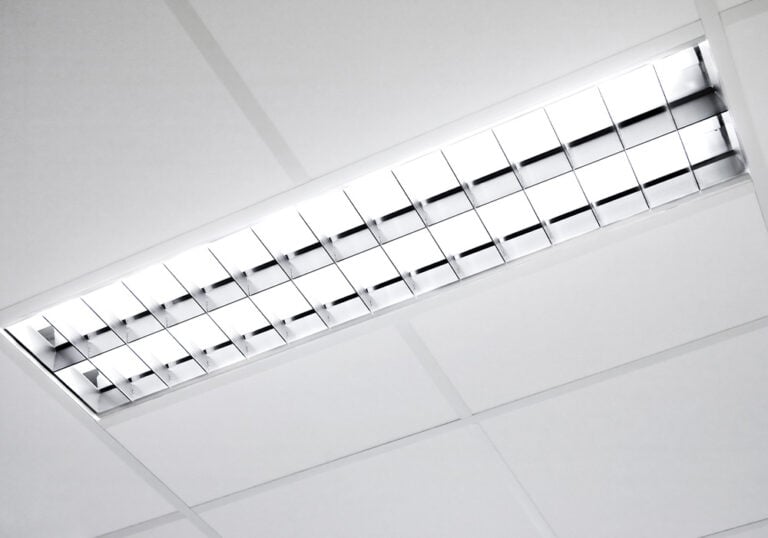No Power to Boiler? What to Check
Few things are more frustrating than having a broken-down boiler with no power. There are several potential issues that may leave you with no power to your boiler; the problem could lie with either the boiler itself or further down the electrical supply chain.
The most common reasons behind having no power to your boiler include having a tripped RCD switch in your breaker box or a blown fuse in the boiler switch; these are two relatively simple problems that you can check and fix yourself. More complex issues include the boiler having a blown internal fuse, a failing PCB, or a malfunctioning LED light. For these issues, it’s best to contact a qualified electrician to fix the problems for you.
6 Potential Reasons Why There’s No Power to Your Boiler
1. Tripped RCD Switch in Breaker Box
If there’s no power to your boiler, a tripped switch in the circuit breaker box is a likely culprit. This is a rectangular box containing a fuse board of switches that controls the flow of electricity to your home.
The majority of properties have a circuit breaker box as part of their electrical system. Within the circuit breaker box is the fuse board or Residual Current Device (RCD). The fuse board controls the power supply to your property; if it detects any power surges or electrical faults, it will ‘trip’, shutting off the flow of electricity. For instance, common conditions that cause tripped switches include power cuts or lightning strikes. The fuse board’s mechanism is designed to protect household members and appliances from such electrical surges.
It’s typical for home electrics to be ‘zoned’, i.e. there are different circuits serving different portions of the property. The circuit breaker box therefore contains multiple breaker switches that correspond with the different circuits in your home. If the switch corresponding to your boiler trips, it will shut off the power to the boiler completely.
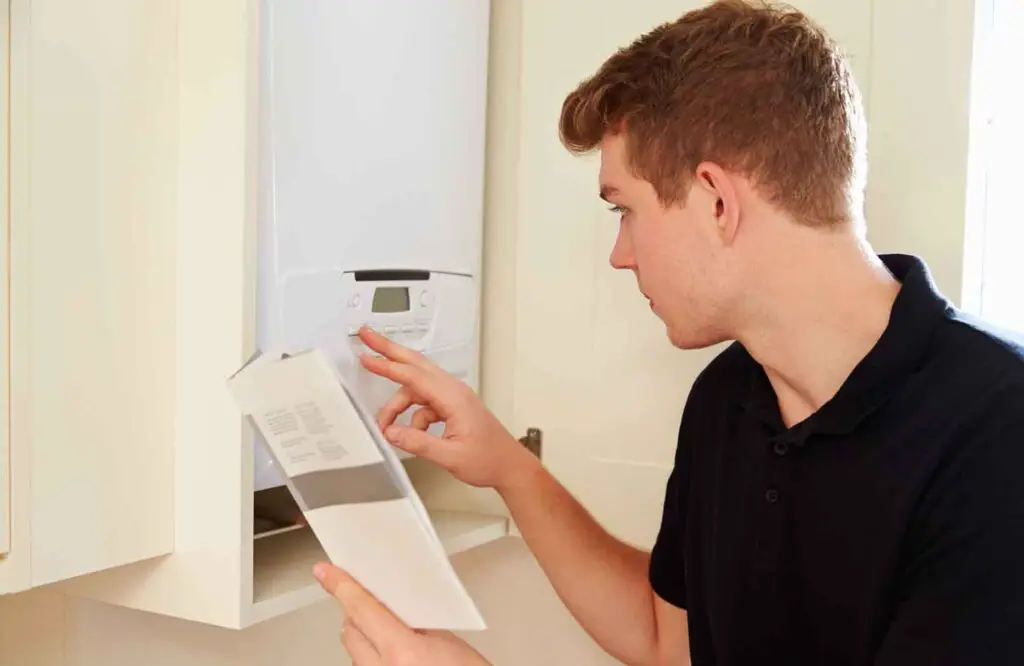
2. Blown Fuse in Boiler Switch
A blown fuse is another common cause behind having no power to your boiler. It’s possible for the fuse in the external switch to blow, stopping the flow of electricity to the boiler.
Like breaker switches, fuses are another line of protection against power surges and electrical faults. The fuse in a switch will ‘blow’ and break the circuit if it detects a power surge. This stops the excess electricity from reaching the appliance, preventing damage and fires; however, the appliance loses power completely until you replace the blown fuse with a new one.
Your boiler will have a main switch that turns the entire unit on and off. Within this switch is a fuse, that if blown, will cause your boiler to have no power. You won’t be able to turn on your boiler at all if it doesn’t have a working fuse.
3. Blown Internal Boiler Fuse
Following from the previous section, boilers also have internal fuses that can blow. Some boilers have two or more inbuilt fuses to further protect against power surges. They are designed to keep the boiler’s electrical circuits segregated from the main circuits in your system.
Again, if the internal fuse detects a power surge, it will blow and cut off the power supply to the boiler. These fuses can also stop working over time as they age. Like the external fuses, it’s necessary for any blown internal fuses to be replaced before the boiler can receive power.
4. Failure of Boiler’s Printed Circuit Board (PCB)
Another internal part of the boiler that can fail is its printed circuit board, or PCB. If the PCB is faulty, it will interrupt the electrical circuits in the boiler. The boiler will have no power as a result.
In a boiler, the printed circuit board is essentially the electrical control centre. The PCB’s job is to synchronise all of the electrical components of the boiler; it coordinates the boiler’s key electrical processes to happen at the right time and in the right sequence. A fault in the PCB will usually just cause the boiler to lose power and switch off. Alternatively, this fault can ‘lockout’ the boiler upon which it will display the relevant error code.
5. Malfunctioning LED Light on Boiler
Although it’s uncommon, a potential reason why it seems your boiler has no power could be down to a faulty LED. A malfunctioning light on the boiler could create the illusion that it isn’t receiving power.
Boilers typically have LED lights on their interface to indicate the on/off status of the unit. If the LED light fails, it will seem as though the boiler is dead. It’s easy to assume this means there’s no power going to the boiler; in reality, other than the faulty LED light, the boiler is working fine. The fix for this issue is simple as it only entails replacing the failing LED light.
6. Issues with Electrical Supply
An obvious reason why there’s no power to your boiler could be a total loss of power from your utility. This could be due to a general power outage at the supplier’s end; it may also be a result of having no credit on your meter if you have a metered system.
What to Check When You Have No Power to Your Boiler
1. Check Circuit Breaker Box
When there’s no power to your boiler, your first stop should be your circuit breaker box. You need to check the breakers for any tripped switches that may be stopping electricity reaching the boiler.
Find the circuit breaker box in your home. If you’re unsure where to look, they’re typically located in a low-traffic area, e.g. under the stairs, or in a garage, basement, or utility closet. Older houses may even have their breaker boxes outside. In apartments, the box may be in more of a central location, like a hallway or cupboard. Look for a rectangular metal box sitting flush against the wall.
Once you find it, open up the circuit breaker box and look over the switches. All of the switches should be upwards in the ‘on’ position. A tripped switch to the boiler will be obvious if your switches are labelled; look for the ‘boiler’ switch or the switch labelled for the room that the boiler is in. If your switches don’t have labels, just look for any tripped in the downward ‘off’ position.
Flip up any switches that appear to be tripped. This should return power to the boiler. If not, or if the switch continues to trip repeatedly, the fault lies elsewhere in the system. Continue to the next troubleshooting step if this one fails to solve the issue.
2. Check External Boiler Fuse
The next step is to check for a blown fuse in the main switch to the boiler. This is a likely cause for having no power to the boiler if you’ve just had a power cut. Or, it may just be the case that the fuse has blown due to age.
Look for the main switch to your boiler. This should be right beside or very close to the unit. Otherwise, it may be in an airing cupboard where your hot water tank is. The boiler’s main switch should have a small red see-through plate housing the fuse.
Using a non-conductive (non-metallic) tool like an insulated screwdriver, lever the fuse holder out of the switch. Remove the fuse; this is a small object shaped like a cylinder with metal caps on either end. If it appears charred, this is a clear indication that the fuse is blown.
Replace the fuse using a new fuse with a suitable amperage for the boiler. You can find out the correct fuse amperage for your boiler by referring to its user manual. If you don’t have the user manual, look up your model online or contact the manufacturer for this information. Put the new fuse into the housing before checking if the boiler has power again.
3. Check for Issues with Utility Provider
The last check you can carry out yourself is to ascertain whether there are any issues with your utility. You could be experiencing a partial or full power outage, or another issue that lies beyond your home electrics.
Make sure your meter hasn’t run out of credit if your home is on a metered system. If you suspect that you’re experiencing a power outage, get in contact with your utility provider to enquire about drops in service.
4. Call an Electrician
If you fail to fix the issue in the previous steps, your final option is to contact a qualified electrician.
All of the other potential causes for a boiler having no power will require a professional eye to diagnose and repair; as we’ve explained, this could be a blown fuse inside the boiler, a failure of the boiler’s circuit board, or a malfunctioning light on the boiler’s interface. Unless you’re an experienced electrician, you shouldn’t attempt to fix these more complex issues yourself. It’s best to get in contact with a qualified electrician who will get your boiler back up and running safely.

